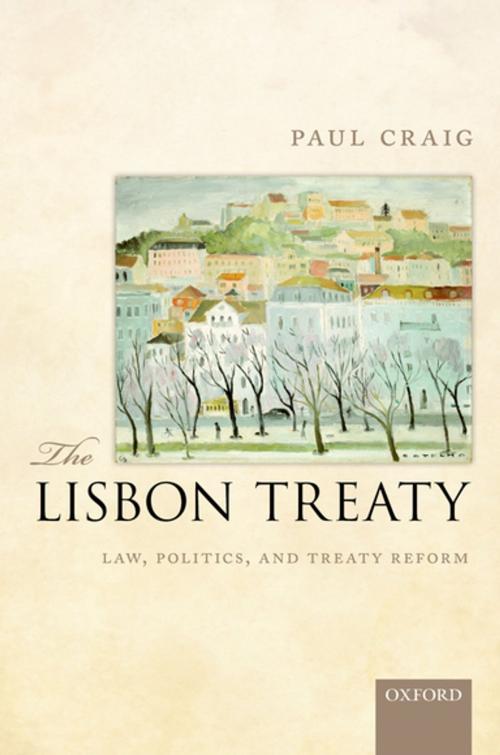The Lisbon Treaty
Law, Politics, and Treaty Reform
Nonfiction, Reference & Language, Law, Constitutional, Social & Cultural Studies, Political Science| Author: | Paul Craig | ISBN: | 9780191642821 |
| Publisher: | OUP Oxford | Publication: | May 9, 2013 |
| Imprint: | OUP Oxford | Language: | English |
| Author: | Paul Craig |
| ISBN: | 9780191642821 |
| Publisher: | OUP Oxford |
| Publication: | May 9, 2013 |
| Imprint: | OUP Oxford |
| Language: | English |
The Lisbon Treaty reformed the foundations of the European Union and marked the culmination of a process of Treaty reform that began after the Treaty of Nice and spanned almost a decade. This book addresses the main innovations made by the new Treaty, examining its legal and political consequences in a reformed EU. The book is organized thematically around the principal issues that occupied those engaged in the reforms over the last decade. The chapters include analysis of the reform process itself and the political forces that shaped the relevant provisions of the Lisbon Treaty. The book contains detailed analysis of the relevant legal changes made by the Lisbon Treaty on each topic covered. This legal analysis is informed by broader literature from related disciplines, such as political science and international relations, since it is only by doing so that it is possible fully to understand the legal implications of the new provisions dealing with issues such as the inter-institutional division of power within the EU, the distribution of competence, the hierarchy of legal acts and the Charter of Rights. The book addresses the political and legal implications of the Treaty provisions, and the discussion is set against the background of the pre-existing legal and political regime, aiding a full understanding of the effect of the new rules contained in the Lisbon Treaty. This revised paperback edition includes a new chapter detailing the political reform process leading to the proposed Fiscal Union Treaty, and its potential legal implications.
The Lisbon Treaty reformed the foundations of the European Union and marked the culmination of a process of Treaty reform that began after the Treaty of Nice and spanned almost a decade. This book addresses the main innovations made by the new Treaty, examining its legal and political consequences in a reformed EU. The book is organized thematically around the principal issues that occupied those engaged in the reforms over the last decade. The chapters include analysis of the reform process itself and the political forces that shaped the relevant provisions of the Lisbon Treaty. The book contains detailed analysis of the relevant legal changes made by the Lisbon Treaty on each topic covered. This legal analysis is informed by broader literature from related disciplines, such as political science and international relations, since it is only by doing so that it is possible fully to understand the legal implications of the new provisions dealing with issues such as the inter-institutional division of power within the EU, the distribution of competence, the hierarchy of legal acts and the Charter of Rights. The book addresses the political and legal implications of the Treaty provisions, and the discussion is set against the background of the pre-existing legal and political regime, aiding a full understanding of the effect of the new rules contained in the Lisbon Treaty. This revised paperback edition includes a new chapter detailing the political reform process leading to the proposed Fiscal Union Treaty, and its potential legal implications.















